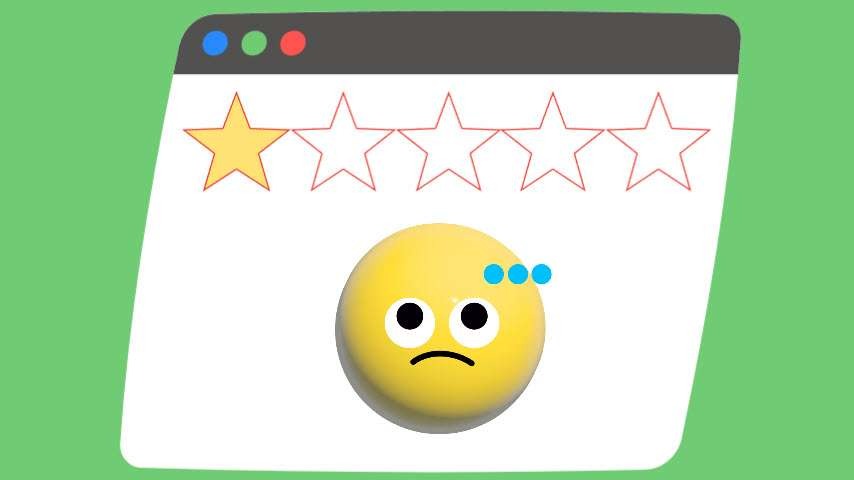At Gemini Web Media, we have been helping businesses grow and thrive in the digital world for over 16 years. One of the most critical elements that drive business success today is your online reputation. In an age where people turn to Google reviews, Yelp, and social media to make purchasing decisions, having a strong and positive online reputation isn’t just a luxury—it’s a necessity.
This article will take a deep dive into the importance of online reputation management (ORM), the strategies for building a stellar reputation, and the long-term benefits of making your reputation work for you. Whether you’re a small business owner or managing a larger organization, the steps outlined here will provide you with actionable insights to improve your online presence and customer relationships.
Why Online Reputation Matters

Your online reputation is essentially your digital footprint—what people find when they search for your business online. Think of it as your first impression, often happening long before a potential customer ever walks through your door or clicks on your website. In fact, studies show that 90% of consumers read online reviews before making a decision. This means that your online reputation is no longer optional or secondary; it’s a critical business asset.
Trust and Credibility
Your reputation impacts trust and credibility, two pillars upon which any successful business is built. Positive reviews and testimonials give potential customers the confidence they need to choose your business over competitors. On the flip side, negative reviews or a lack of reviews can sow doubt and send customers looking elsewhere. This dynamic is especially true in highly competitive markets, where consumers have many options and rely on others’ experiences to inform their decisions.
Impact on Sales
Your online reputation has a direct impact on sales and revenue. Consider this: 88% of consumers trust online reviews as much as personal recommendations. If your business consistently has positive reviews, you’ll notice an uptick in customer acquisition. However, businesses with a low star rating or too many unresolved negative reviews will see a drop-off in inquiries, sales, and long-term revenue.
Search Engine Optimization (SEO)
Your reputation doesn’t just influence customers; it also affects how search engines rank your business. Search engine algorithms take into account the frequency, quality, and consistency of your reviews. A business with a steady stream of positive feedback will naturally rank higher in search results, meaning more visibility and, ultimately, more business.
In addition to reviews, mentions of your brand on blogs, articles, and social media also play a role in improving your SEO rankings. Search engines like Google favor businesses with active, well-managed reputations, making ORM an essential aspect of your overall digital marketing strategy.
The Three Pillars of Online Reputation Management
At Gemini Web Media, we break down online reputation into three essential pillars: Managing, Building, and Marketing your reputation. Let’s explore these concepts in greater detail.
1. Manage Your Reputation
The first step in online reputation management is, unsurprisingly, management. You need to actively monitor and control what’s being said about your business across various platforms.
Monitoring Your Reviews
Review platforms like Google My Business, Yelp, and Facebook Reviews are where most customers leave their feedback. To manage your reputation effectively, you need to respond to every review—both positive and negative. Responding shows that you are engaged with your audience and that you care about their feedback.
For example, when a customer leaves a glowing review, thank them for their support. Acknowledge their experience and let them know you appreciate their business. Conversely, if a customer leaves a negative review, your response should focus on resolving the issue. Offer to rectify the situation, either by addressing the problem directly or offering a personal line of communication (e.g., “Please call us to discuss your experience”).
Handling Negative Reviews
Negative reviews are inevitable. However, how you respond to them can make or break your reputation. Don’t ignore negative reviews. Instead, turn them into opportunities to showcase your business’s customer service skills. Address the issue in a calm and professional manner, offer solutions, and most importantly, take the conversation offline when appropriate.
Many businesses make the mistake of being defensive or ignoring criticism, but this only serves to worsen the situation. By responding promptly and professionally, you can demonstrate that your business is committed to improvement, which can win over potential customers who read the review thread.
Reputation Alerts
To stay on top of your reputation, set up reputation alerts. These can be set through Google Alerts, specialized ORM software, or platforms like Yelp. Alerts allow you to be notified every time your business is mentioned online, so you can quickly respond to both positive and negative feedback.
2. Build Your Reputation
Once you’re actively managing your reviews and feedback, the next step is to build your reputation by encouraging satisfied customers to leave reviews and share their experiences.
Ask for Reviews
One of the most effective ways to build your online reputation is simply to ask. Encourage your customers to leave reviews after they’ve had a positive experience with your business. This can be done in person, via email, or through automated follow-up systems that send a review request after a purchase or service is completed.
Pro Tip: Make it easy for your customers. Provide them with direct links to review sites or even create simple, easy-to-navigate review forms on your website.
Incentivize Feedback
While you cannot (and should not) pay for reviews, you can incentivize feedback by offering small perks like discounts or freebies. For example, offer customers a discount code after they leave a review. This not only encourages feedback but also builds customer loyalty by offering a tangible reward for their time.
Social Proof
Reviews act as social proof. The more positive reviews you have, the more credible your business will appear. Display these reviews prominently on your website, social media channels, and marketing materials. Seeing other customers vouch for your business encourages new visitors to trust your brand and make a purchase.
Diversify Your Presence
Make sure you have a presence on multiple platforms. While Google reviews might be the most common, other review sites like Yelp, TripAdvisor (if relevant), and even Facebook are also critical for your reputation. Diversifying your review portfolio helps you reach more potential customers and creates a broader web of social proof.
3. Market Your Reputation
Finally, once your reputation is built and managed, it’s time to leverage it as a marketing tool. At Gemini Web Media, we believe that reputation marketing is one of the most underrated marketing strategies available to businesses.
Highlight Reviews in Your Advertising
Incorporate positive reviews into your advertising campaigns. Whether through Google Ads, Facebook Ads, or even print media, showcasing real customer testimonials can significantly increase conversion rates. People trust other customers’ experiences more than traditional marketing messages, making this an incredibly powerful tool.

Share Reviews on Social Media
Your social media platforms are perfect for sharing customer success stories and positive feedback. Create visually appealing posts with review snippets and pair them with images of happy customers or your products in action. This not only helps reinforce your brand’s positive image but also encourages others to share their own experiences.
Tip: Use tools like Instagram Stories, Twitter mentions, or Facebook posts to highlight your customer reviews. It’s a great way to stay active on social media while providing social proof.
SEO and Reviews
As mentioned earlier, reviews play a role in SEO. To take full advantage of this, ensure that your website displays customer reviews, especially on product pages, service descriptions, and landing pages. Displaying reviews boosts SEO rankings, but it also helps build trust with site visitors.
Video Testimonials
Another excellent way to market your reputation is through video testimonials. Video content is more engaging and persuasive than text alone, and it allows potential customers to see the genuine emotion and satisfaction from your current clients. You can feature these testimonials on your website, social media, or even in paid advertisements to make a bigger impact.
Reputation Marketing for Long-Term Growth
Reputation marketing is not just a short-term tactic; it’s a long-term growth strategy. By continually managing, building, and marketing your reputation, you create a cycle of trust that sustains your business growth over time. The more positive reviews you collect, the more people will trust your brand. As your customer base grows, so does your online reputation, leading to increased brand visibility and credibility.
Case Study: How We Helped a Local Business Increase Conversions by 150%
One of the clients we’ve helped at Gemini Web Media is a local HVAC company that was struggling to stand out in a saturated market. Despite offering top-tier service, their online reputation wasn’t reflecting their quality. After implementing our Manage, Build, and Market strategy, here’s what happened:
- We monitored and responded to every review, ensuring each customer felt heard and valued.
- We set up automated review requests and offered incentives for feedback, leading to a 300% increase in reviews within six months.
- We used these reviews in their online advertising campaigns and showcased them across their website, leading to a 150% increase in conversions.
By taking control of their online reputation, this company was able to not only attract more customers but also convert them into loyal clients.
The Future of Online Reputation Management
Online reputation management is constantly evolving. As consumer behavior changes, businesses need to stay ahead of the curve to remain competitive. The rise of platforms like TikTok and Instagram means that visual reviews and influencer testimonials will play a larger role in the coming years. Businesses that adopt these trends early will have a significant advantage.
At Gemini Web Media, we’re always staying ahead of these trends to offer our clients the most effective and innovative strategies.
 Add Row
Add Row  Add
Add 




Write A Comment